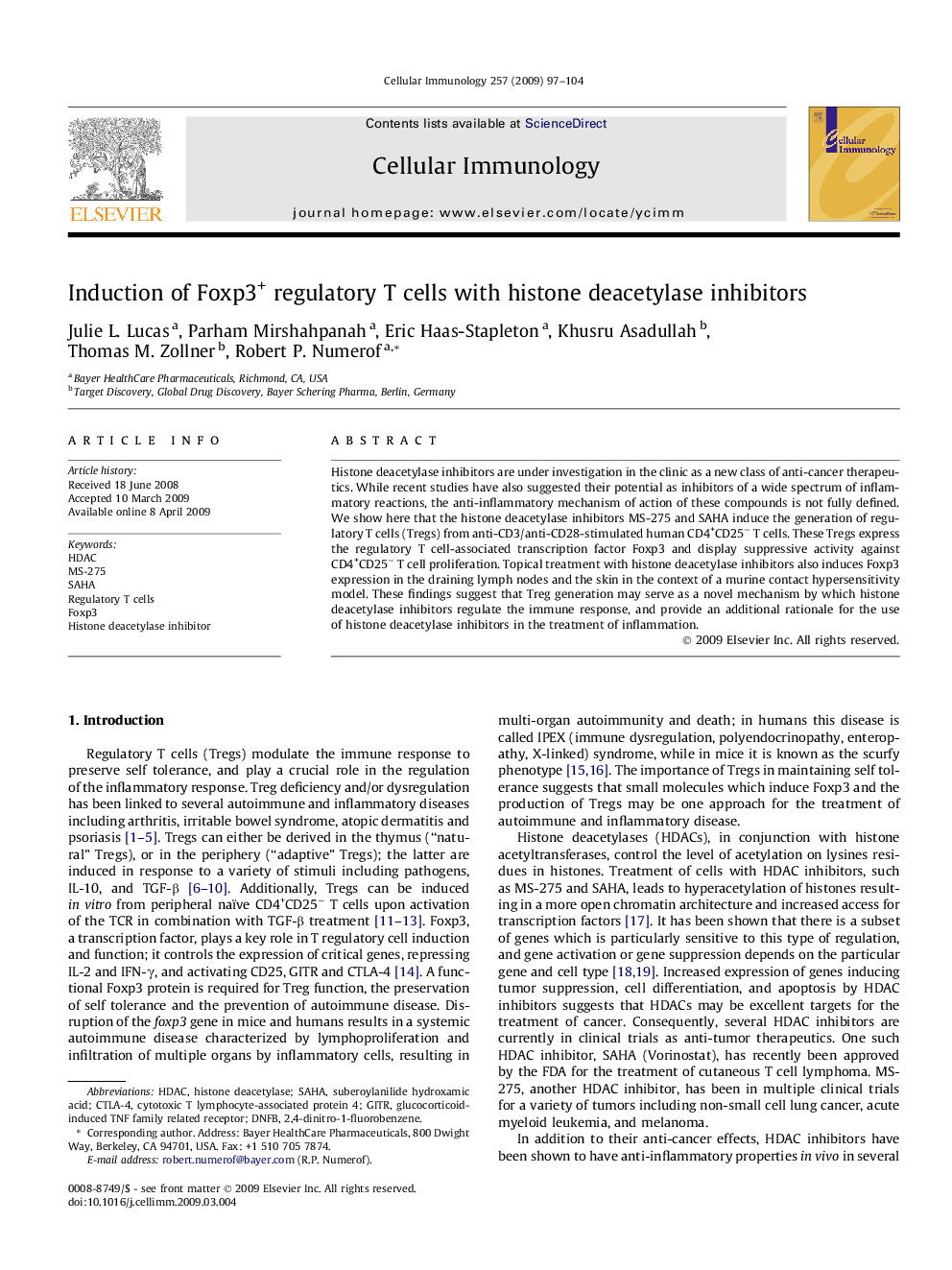| Article ID | Journal | Published Year | Pages | File Type |
|---|---|---|---|---|
| 2167929 | Cellular Immunology | 2009 | 8 Pages |
Histone deacetylase inhibitors are under investigation in the clinic as a new class of anti-cancer therapeutics. While recent studies have also suggested their potential as inhibitors of a wide spectrum of inflammatory reactions, the anti-inflammatory mechanism of action of these compounds is not fully defined. We show here that the histone deacetylase inhibitors MS-275 and SAHA induce the generation of regulatory T cells (Tregs) from anti-CD3/anti-CD28-stimulated human CD4+CD25− T cells. These Tregs express the regulatory T cell-associated transcription factor Foxp3 and display suppressive activity against CD4+CD25− T cell proliferation. Topical treatment with histone deacetylase inhibitors also induces Foxp3 expression in the draining lymph nodes and the skin in the context of a murine contact hypersensitivity model. These findings suggest that Treg generation may serve as a novel mechanism by which histone deacetylase inhibitors regulate the immune response, and provide an additional rationale for the use of histone deacetylase inhibitors in the treatment of inflammation.
